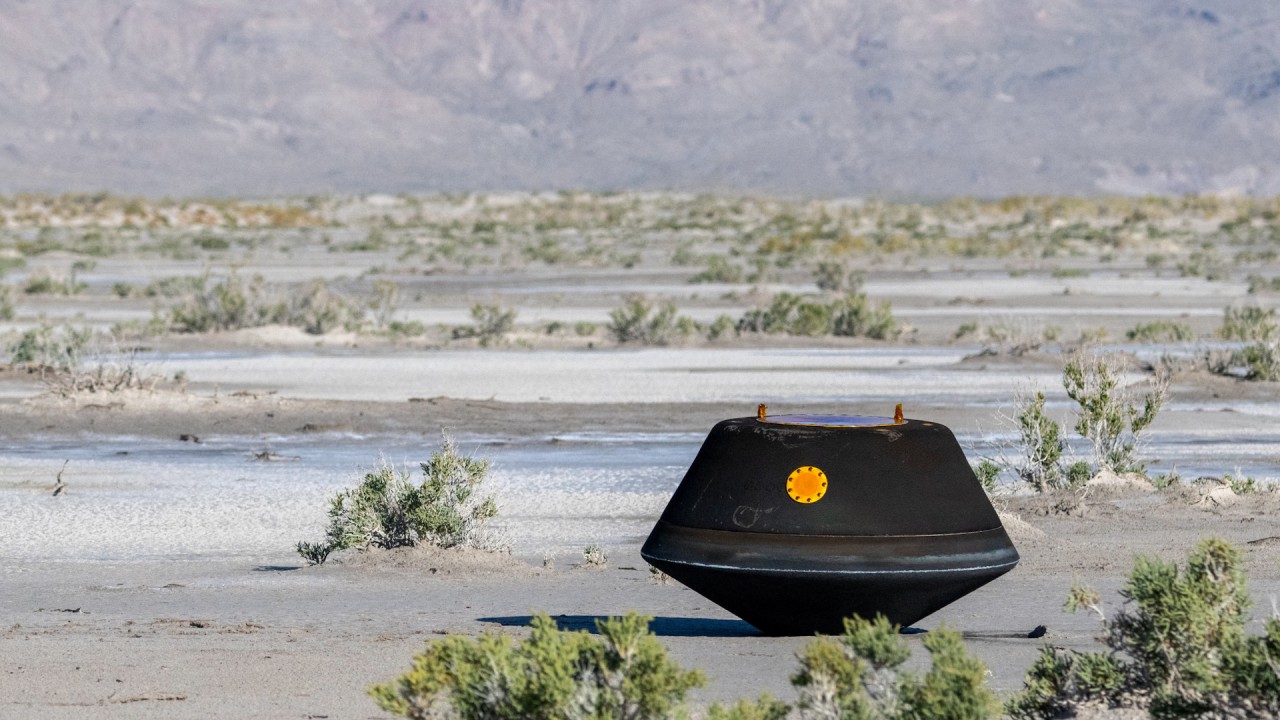How China ties space projects in Africa with climate and security priorities
He said more than 14 meetings between Chinese institutions and different layers in the African Union Commission had been held to push along “the massive adoption of the BeiDou Navigation System”.
The South African National Space Agency signed a memorandum of understanding with the China Satellite Network Office on BDS applications in 2021.
“We are seeing a lot of collaborations across all industry sectors, including communications, Earth observations, navigation and positioning, as well as space satellites,” Oniosun said.
Oniosun made the comments on November 14 at an event organised by the United States Institute of Peace (USIP) to release its report on China’s space collaboration with Africa. The study was conducted by Julie Klinger, an assistant professor in the department of geography and spatial sciences at the University of Delaware and Oniosun.
West races to challenge China’s dominance in African minerals market
West races to challenge China’s dominance in African minerals market
Oniosun said China was developing satellite technology for different African customers and had so far built satellites for them worth about US$900 million.
He told the USIP event that beyond satellites, China was developing ground station infrastructure for countries such as Ethiopia – the Entoto Observatory and Research Centre in Addis Ababa – Nigeria and Algeria.
According to the study, China launched the first communications satellites for Nigeria (in 2007 and 2011) and Algeria (2017), and the first satellites for Ethiopia and Sudan (both in 2019).
By October 2021, some 23 of Africa’s 54 countries had bilateral space partnerships with China, the report said.
Ethiopia is a model of China’s cemented strategic outer space relations in Africa. China funded the development of two satellites (ETRSS-1 and ET-SMART-RS) and two ground stations, including a multi-satellite ground receiving station in Ethiopia.
Other countries have also funded the building and launch of satellites in Africa. Kenya’s 1KUNS-PF was partly funded by Japan while Angola’s communications satellite AngoSat-1 was financed with loans from Russia.
However, according to the USIP study, China’s space spending in African countries integrates development with counterterrorism and peace and security applications, and is part of a much broader context of domestic programmes and diverse international partnerships.
For example, in Nigeria, China has not only helped to finance communications satellites and train Nigerian satellite scientists and engineers, it has worked with Nigeria’s Defence Space Administration (DSA), which provides space and cyberspace capabilities for the Nigerian military and law enforcement agencies.
According to the study, China has helped to “develop and manage Nigeria’s military space technologies, support military operations both within and outside the country, and assist security agencies responsible for internal security”, resulting in indirect involvement in the counterterrorism and military aspects of Nigeria’s satellite development.
Further, the study said, the China Academy of Sciences was working with the United Nations Environment Programme, to build a network of Chinese and African scientists to use space technology to prepare for natural disasters and monitor climate change and resilience, with a particular focus on agriculture.
Joseph Sany, vice-president of the Africa Centre at the US Institute of Peace, said space programmes existed in more than 20 African countries and were rapidly growing in number and rates of investment.
Sany said many received funding from the Chinese government and collaborated with Chinese state-owned enterprises. “China pushes space collaboration in Africa in a very intentional way by allocating funds and identifying areas of existing priorities, like climate change and counterterrorism efforts,” Sany said.
He said while US private and public entities collaborated with African countries in the space industry and programme development, “these efforts are not coordinated through the current US foreign policy”.
Oniosun said that nevertheless, Africa offered decent business opportunities for global space companies.
“Not just the US … but a lot of global space companies are currently struggling and a few of them have had to declare bankruptcy,” he said, adding that Chinese companies had capitalised on this for years and it was only now that US companies were waking up to this reality.
Oniosun said that among China’s actions that may shape the space industry in the next decade was its exploration of African territory for satellite launches.
“They are currently talking to Djibouti to set up infrastructure to launch satellites from Africa,” he said, explaining that the location of many African countries on the equator provided a good landscape for supporting satellite launches, or even moon missions.
The study said a number of US universities and federal agencies were actively involved in research partnerships with African countries.
Researchers from Cornell University began in 2021 to develop the first high-resolution carbon monitoring system for East Africa that combines “bottom-up” ecological modelling with “top-down” satellite data thanks to a three-year US$1 million grant from Nasa. Nasa is also funding a project by researchers at the University of Buffalo to map species and ecosystems at the southwestern edge of South Africa.
While private and government US players are actively engaged in Africa’s space sector, American support for space technology development is not coordinated with broader US foreign policy objectives.
Chinese-funded Africa CDC lab opens in Ethiopia
Chinese-funded Africa CDC lab opens in Ethiopia
“The US does not have a clear strategy for engaging with African counterparts in the space domain and this is in contrast to China, the European Community and to Russia which have dedicated personnel or plans that are about specifically engaging with Africa and [the] space sector,” Klinger said.
She said US engagement with Africa with respect to outer space was a response to China’s foray.
“The fact that it is reactive again underscores the lack of careful engagement with the African Union Commission or with individual African countries in order to really understand how both sides can benefit,” Klinger said at the USIP event.






